Geneva Motor Show: Supercars set to roar off the block
- Published
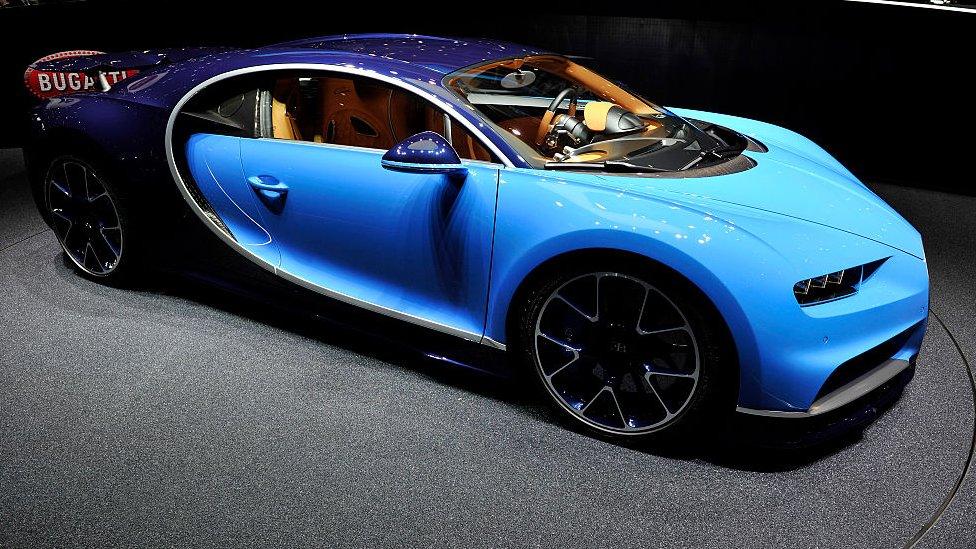
The Bugatti Chiron; now on show at the Geneva Motor Show
Maybe it is Switzerland's neutrality that persuades the motor industry's big guns to turn out in such force for the Geneva Motor Show.
This year, the show is being dominated by the launch of a clutch of supercars, sports cars and luxury motors from the likes of Bugatti, Ferrari, Lamborghini and Aston Martin.
While car shows in Detroit and Frankfurt vie for importance, they tend to be dominated by the host countries' companies.
It's Geneva's level playing field that the good and the great who run the industry find attractive - well, that and possibly the chance to squeeze in some skiing.
So the 86th Geneva Motor Show starts this week with the industry's mood much improved.
After years of painful restructuring and the near-death of several companies, motor manufacturing has climbed out of recession.
European car sales last year were 14.2 million, 9.2% higher than in 2014, though still below levels before the economic crisis.
And 2016 has got off to a good start, with sales up 6.3% in January year-on-year, according to the European Automobile Manufacturers Association.

Ferrari's GTC4 Lusso is aimed at the family consumer
There has been much debate, especially during the bad times, about whether spending millions of euros and dollars on motor show car launches is worth it.
In the era of social media, YouTube and the iPad, some people argue that motor shows are less important for getting the message across.
And with today's cars as much about technical wizardry as performance and design, marketing departments are increasingly diverting some of their budgets to tech events like Las Vegas's Consumer Electronics Show.
Exotica
Yet, there are few signs at this Geneva show that carmakers are rowing back. The list of product launches is long, as is the showcasing of new technologies, concepts and curiosities.
Analyst Tim Urquhart, from IHS, thinks the show will be less about themes, and more about "the European industry taking care of business, coming up with compelling product that will bring buyers into showrooms and maintain the current positive sales trend."
Geneva has a reputation for debuting the exotic, and this year does not disappoint. Take a bow, the Bugatti Chiron.
For petrol heads, the launch of Bugatti's successor to its Veyron supercar will provide the show's wow factor.
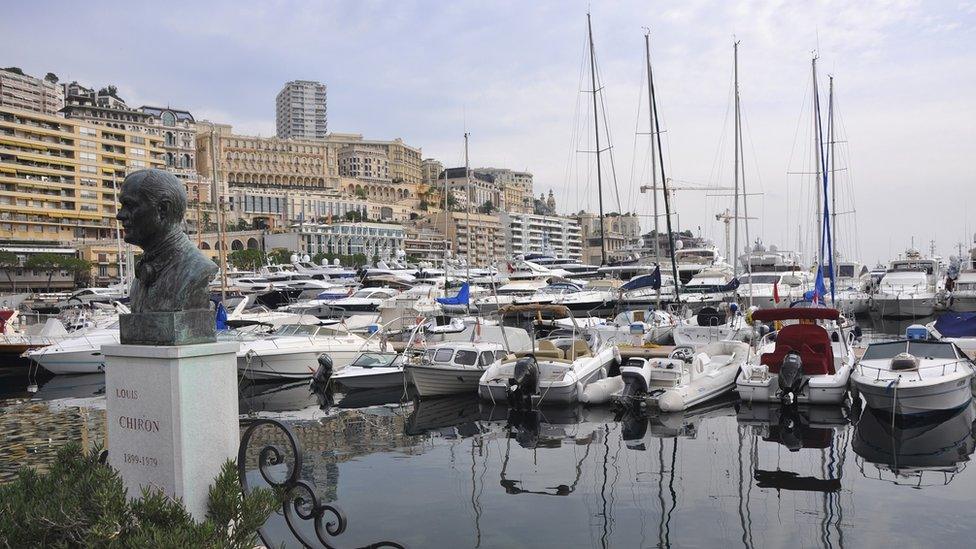
Bugatti has named its latest supercar after racing driver Louis Chiron
Jeremy Clarkson described the Veyron thus: "It has rendered everything I've ever said about any other car obsolete. It's rewritten the rule book, moved the goalposts and in the process, given Mother Nature a bloody nose." The Chiron is Bugatti's attempt to improve on it.
Details were being kept under wraps until the official unveiling today. But to beat the Veyron, the Chiron needs to do 100km/h in under 2.7 seconds and have a top speed of more than 424kmh (264mph). It's all road legal - and yours for about $2.5m (£1.8m; €2.3m).
Happy birthday Mr Lamborghini
Back in the real world (if that's the right phrase), Ferrari is debuting two cars, the California T Handling Speciale and the GTC4 Lusso four-seater. The latter is pitched at the younger family man (and woman). The kids should enjoy doing the 100km/h in 3.4 seconds.
Meanwhile, Ferrari's near-neighbour Lamborghini celebrates the birth of its founder 100 years ago with the unveiling of the Centenario. Lamborghini has been promising an all-new car, not a tweak to an existing model, so aficionados have been getting excited.
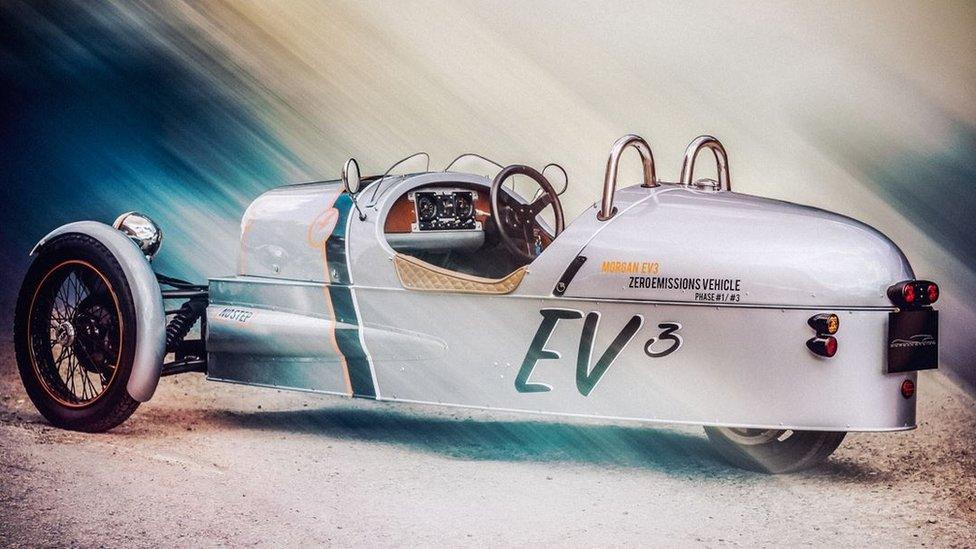
Not a supercar, but still notable: even niche UK manufacturer Morgan is going green
However, if you've got a spare €2m (£1.5m), look elsewhere. Only 40 are being made - and they were all sold two months ago.
Another hotly-anticipated debut is Aston Martin's DB11, a replacement for the DB9 (the DB10 moniker was skipped because it was used in James Bond's last film, Spectre).
'Profit generator'
Last year, Aston's boss Andy Palmer hinted that the company might address complaints that each new generation of cars was starting to look alike.
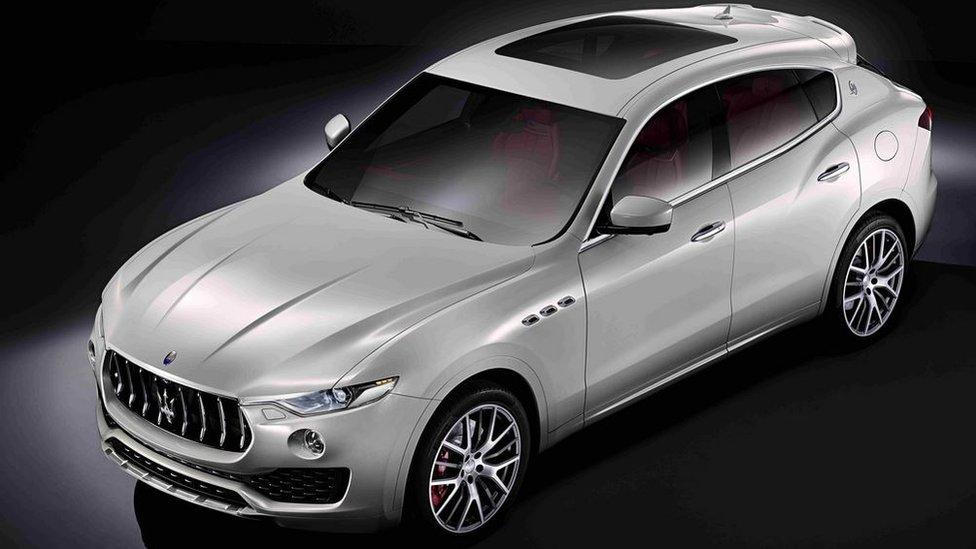
Sportscar maker Maserati is making a bold move into a new market with the Levante
That's sparked a lot of speculation about the DB11's design. A few spy shots of a camouflaged DB11s have aired on social media, but nothing official has so far been released.
Look out, too, for Maserati's entry into the crowded market for sports utility vehicles. If Geneva underlines any trend, it's the seemingly unstoppable growth in SUVs.
Audi, Seat, Skoda are among a string of manufacturers displaying new SUV products. Maserati's Levante is pitched at the top of the market, with the Porsche Cayenne in its sights.
It's a big diversion for the Italian sportscar firm, but it follows other luxury carmakers, including Jaguar and Bentley, into the SUV market.
"Maserati's Levante is an important model for the brand," says Mr Urquhart. "It is needed as a volume and profit generator, and to bolster the brand's credentials as a serious competitor to Porsche."
There are reports that Maserati is working on a plug-in hybrid engine, another example of how alternative technologies are moving up the industry's value chain.
In fact, "green tech" will be everywhere at Geneva.
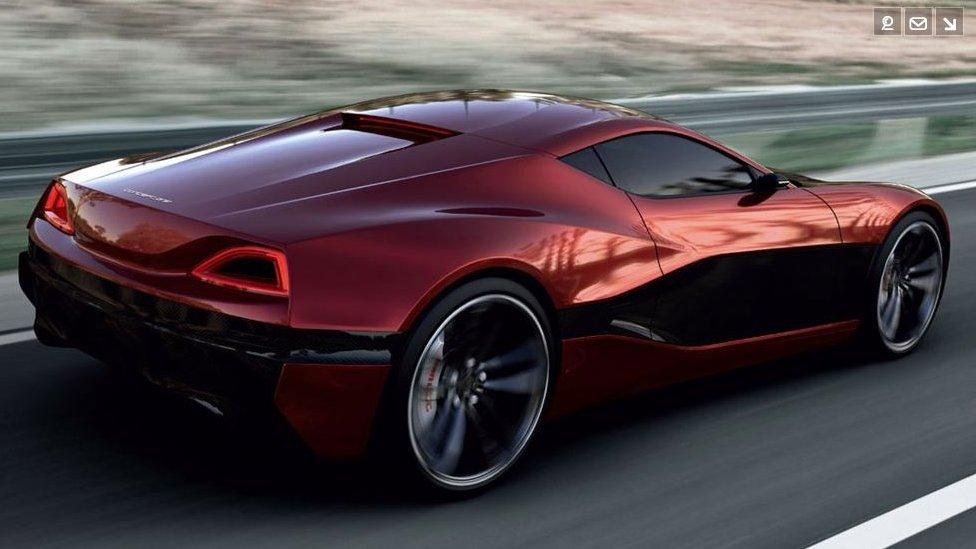
Rimac's computer controlled system allows each wheel to independently accelerate or decelerate depending on handling and driving conditions
Five years after a small Croatian company, Rimac, revealed its all-electric Concept One supercar, the firm is unveiling a production version. The car gets 1,073bhp from four electric motors, and a top speed of 221mph - making it the fastest electric car on the planet, Rimac claims.
Hydrogen
At the other end of the design scale, the UK's boutique manufacturer Morgan is showing its EV3 electric three-wheeler. The technology was developed with the help of a £6m UK government grant. The car has a range of about 120 miles per charge, and with a price tag of £30,000.
Geneva will also see a big push of hydrogen technology. Honda is showing its Clarity Fuel Cell vehicle, Toyota its Mirai.
The fuel cell uses oxygen and hydrogen, producing electricity, heat and water vapour as by-products - and it clearly has big backers, but many people are sceptical that this will win out over rival technologies.
Just last week, Dieter Zetsche, boss of Daimler, which is working on battery electric and fuel cell cars, said that the former technology was likely to win out because charging technology and infrastructure was fast improving.
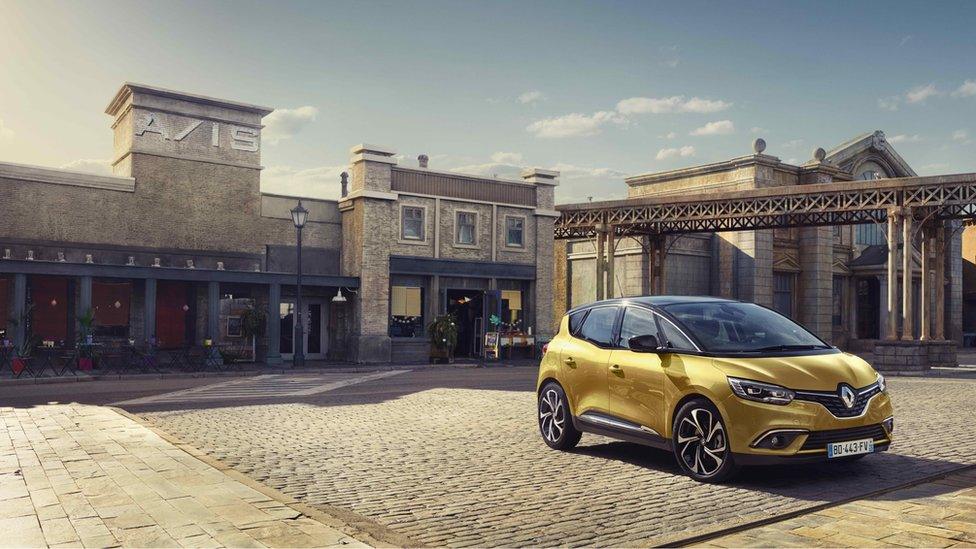
Away from the supercar glamour, the new Scenic could mark one of the show's most significant launches
Of course, there will be plenty of more mainstream stuff at the show, including the launch of the fourth-generation Renault Scenic.
MPVs were the great sales success story of the 1990s, but the popularity waned with the rise of SUV and so-called crossover models.
Can the Scenic make us fall in love again with MPVs?
Amid all the supercar glamour and technological hype, it could well be that it is this latest variant of Renault's segment-leading family car that becomes the lasting sales success to come out of the show.